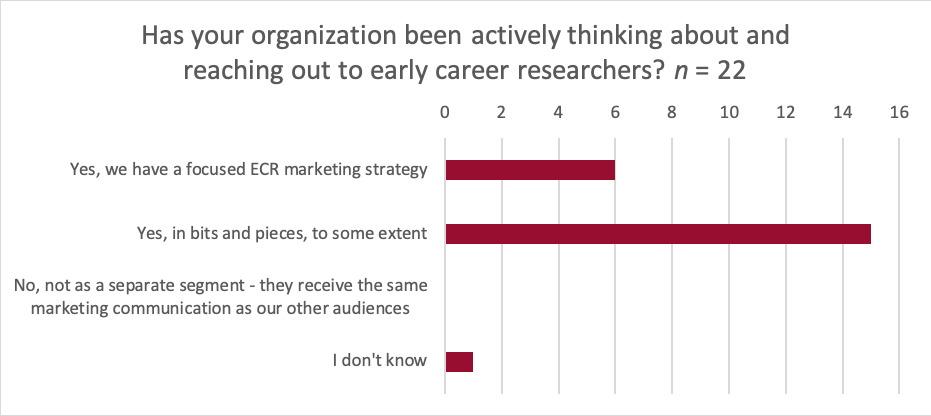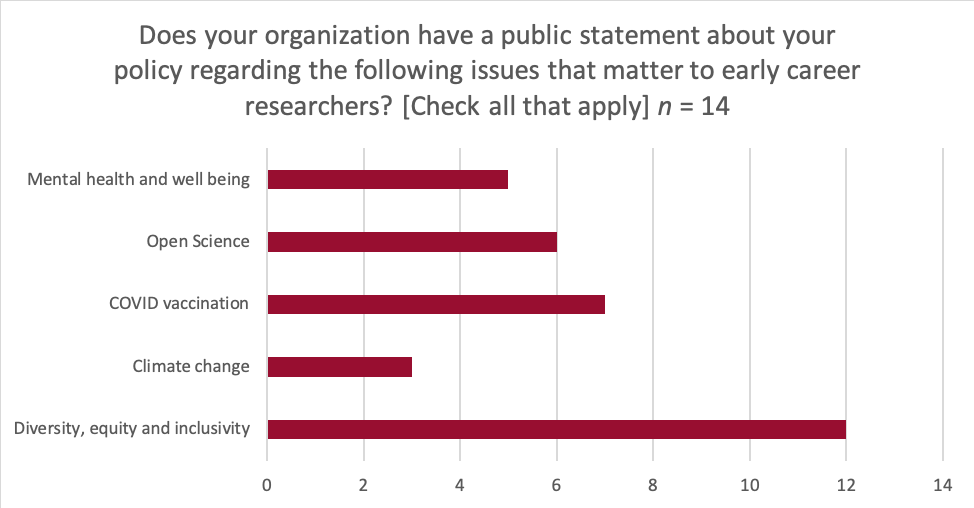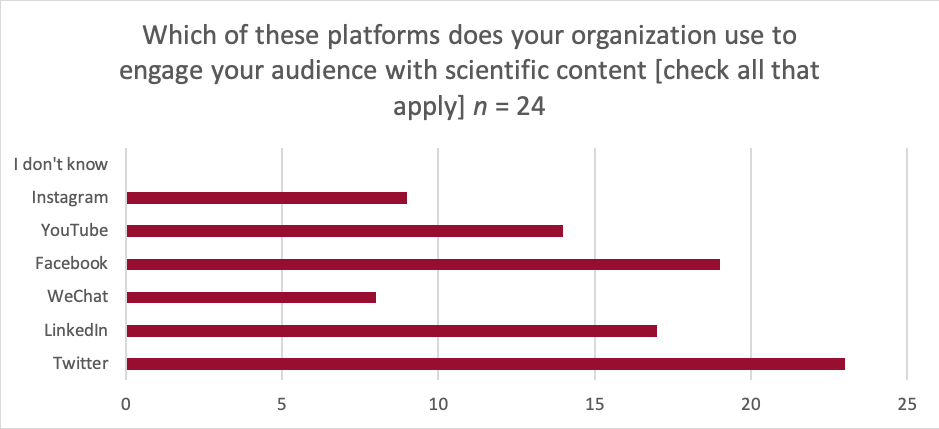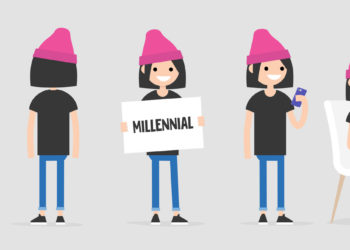Editor’s Note: This guest post is by Nikesh Gosalia. Nikesh is the Senior Vice President – Global Academic & Publisher Relations at Cactus Communications.
At the 44th Society for Scholarly Publishing (SSP) annual meeting, I had the privilege of not only meeting my industry colleagues and peers after more than 2 years, but also hosting a panel discussion called, “Expanding Membership, Reach, and Impact: Striking the right chord with Millennials and Gen Z researchers.” The session was inspired by a whitepaper called “Striking the right chord with early-career researchers: A digital-first guide for academic societies and publishers” that was released a few months ago by Impact Science, a brand of Cactus Communications. I was joined by Charlie Rapple, Co-founder at Kudos (and Scholarly Kitchen Chef), and Jennifer Regala, Director of Publications/Executive Editor at American Urological Association. In her last post here, Charlie set the context very nicely, defining the Millennial and GenZ researcher personas and what they look for in the content they consume. We conducted a few live audience polls during our session, which threw up some interesting responses that I will share here. Although only a small number of delegates participated, wider discussions and web research suggest they are not unrepresentative of the wider sector.
In the Harbingers project — a longitudinal study of “digital natives” — researchers who identified themselves as “early career researchers” (ECRs) were 21–40 years old, that is, Millennials and Generation Z. In the US, these two demographics make up 48% of all workforces. We asked SSP delegates at the session whether their organizations have a strategy in place to attract new ECRs (as authors, reviewers and so on).

It’s great to know that publishers and societies are actively thinking about this segment, but there’s a long way to go. As Charlie mentioned in her post, most publisher websites are designed for Gen X users (born in the late 60s and 70s), and this is probably true for most of their marketing activities as well.
Millennials and Gen Z value experience over things and prefer working with organizations that uphold corporate social responsibility; in fact, 90% want companies to contribute to tackling social and environmental issues. So we asked SSP delegates at the session about their organizations’ policies around a handful of such issues.

When it comes to communications, early career researchers are more likely to use social media for consumption of content than for dissemination of their own research-related content. Their reluctance to share their research on social media stems from copyright-related restrictions, paucity of time, and lack of self-confidence in their own communication skills. In terms of content consumption, this study of scientists from 31 countries, showed more than half of respondents used Twitter, Facebook, and LinkedIn; for example:
- 75% used Facebook to follow pages that focus on science
- 61% used Twitter to connect with fellow scientists,
- 74% had participated in a conference remotely by following tweets
- 31% used Twitter to connect with the public.
We asked our SSP session delegates about which platforms their organizations use to engage with audiences.
In hindsight, we should have included TikTok as an option — the most dowloaded app in 2020, 2021 and 2022 to date is also increasingly being used for science communication. This tweet by Dr Clara Nellist, who posts physics-related videos on TikTok, speaks to the power of this platform for research communication. Another example of a successful TikTok-focused science campaign is UNICEF’s campaign in the Middle East and North America (MENA) to combat COVID-19 and misinformation.

I concluded the session with a summary of the white paper’s recommendations for how publishers and societies can create an effective strategy to engage with ECRs. This is not a comprehensive list but a good starting point to open a discussion. Please feel free to share additional ideas or suggestions that your organization might be using.
- Create byte-sized digital assets of copyrighted papers for ease of social sharing
- Offer training programs to help ECRs develop skills for communication to lay audiences
- Support ECRs in curating and sharing their published work
- Include TikTok in their social media mix and utilize the tool to build public awareness of science
- Invest more time and resources in digital solutions
- Review existing communication strategies
- Focus on social and mobile-friendly campaigns
- Connect to the values and priorities of ECRs, such as open science, carbon neutrality, and research sharing
- Consider a hybrid approach to conferences that enable researchers to network in-person and virtually.



